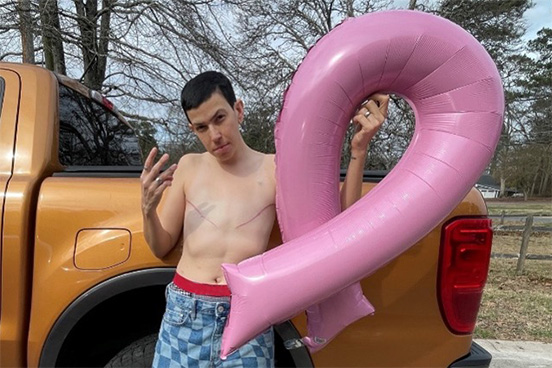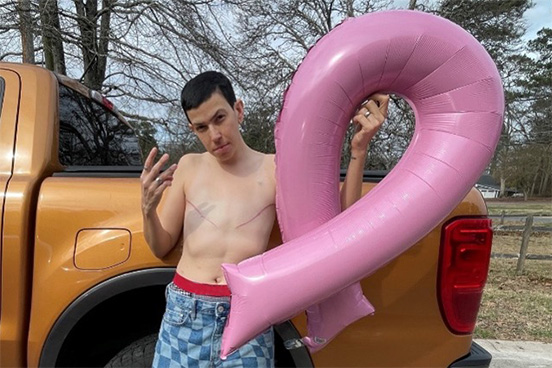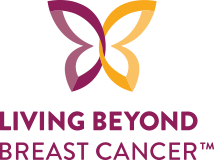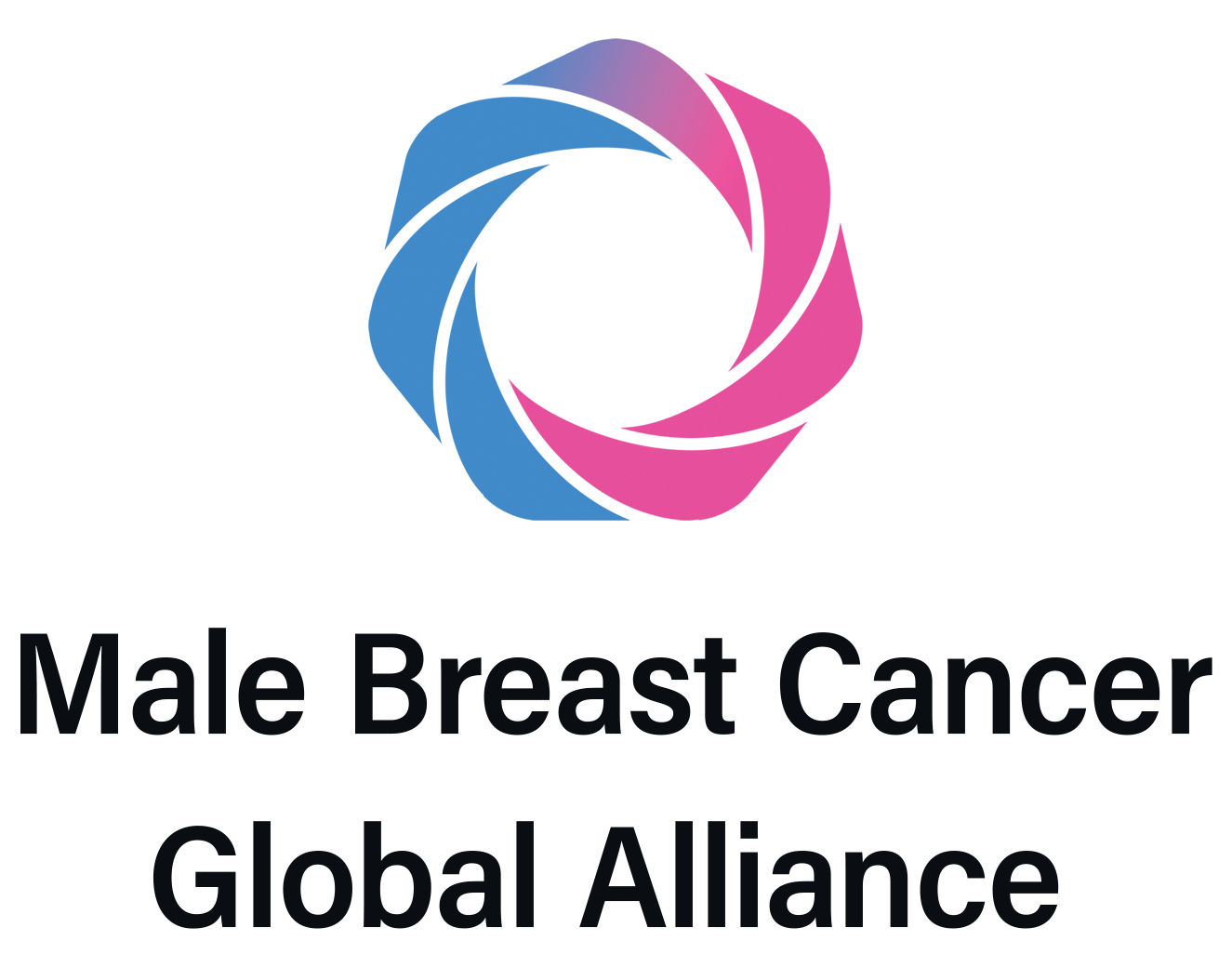My mBC Diagnosis: A Reflection (Part Two)
By Lindzey


Note: Click here to read part one of “My mBC Diagnosis: A Reflection”
My mBC journey has felt at times like an ongoing nightmare because of my family history. While I was growing up, my mom was diagnosed with cancer three separate times, with three different types. One of her diagnoses was breast cancer. I was only 19 years old when my mom had a double mastectomy.
Watching my mom battle cancer was devastating, but my mom went into remission three times. Shortly after my mom was in remission, my dad was diagnosed with stage 4 colon cancer. My family was in shock. It felt like we had to start all over again. My dad’s cancer progressed quickly and spread to his brain. At the time of his diagnosis, the oncologist stated he would likely live three months, but he lived for five years. My family is so proud of my parents and their strength while dealing with their cancer diagnoses.
Both my parents had genetic tests done after their cancer diagnoses. My dad had a BRCA2 mutation, and my mom did not. Typically, people with genetic mutations, such as BRCA2, can have a higher risk of being diagnosed with certain types of cancer.
Unfortunately, I did not have any genetic testing done until after I was diagnosed – and my diagnosis was stage 4 breast cancer. I later learned that I also had the BRCA2 mutation. Given my family history, I wish that I had gotten tested earlier so I could have learned more about my options at the time.
My Double Mastectomy Decision
Breast surgery is not always standard treatment for people living with metastatic breast cancer, but with my specific case, the doctors thought a double mastectomy was the best path forward for me.
I knew I wanted to have the surgery, and I had seen my mom go through with it, so I felt comfortable moving forward with my decision, but I still had a lot of mixed feelings. I felt alienated and excited at the same time.
The surgical oncology team scheduled multiple appointments prior to the procedure to ensure I was comfortable and knowledgeable before my double mastectomy. I was glad that I had the opportunity to meet with my team multiple times beforehand, as I didn’t realize how many decisions I would have to make.
I was given the option for reconstruction after the surgery. Women who have surgery as part of their breast cancer treatment may choose breast reconstruction surgery to rebuild the shape and look of the breast. I chose not to do a reconstruction and to stay flat. This was a personal decision and I felt comfortable flat. It also meant one less procedure for me.
Most people asked me if I was okay losing my breasts, and the answer is yes. To be honest, that part didn’t bother me at all. I have been a “tom-boy” my entire life and was excited to go flat. I feel more like myself now after the surgery than I ever have.
My Advice for Recovery
Recovery was more challenging than I expected. There were a lot of steps that I needed to take to heal properly. I am so thankful for my family and partner, they stood by me every step of the way until I was fully recovered. I am not someone who typically likes to rest and stay in bed, but it was important for me to heal fully so I didn’t put myself at risk.
If you and your healthcare team are considering any procedure, make sure you ask plenty of questions to ensure you feel as prepared as possible. My advice to anyone who is moving forward with a mastectomy is:
- Write down a list of all of your questions and concerns and bring them to your appointments. Getting answers from my healthcare team ahead of my procedure was comforting and made me feel prepared.
- Give yourself time before and after surgery to stay well-rested and avoid any added stress.
- Call your friends and family to set up a schedule for after-surgery care; a lot of times, there are simple tasks you may want others to help you with after surgery. Knowing I was coming home to a plan helped me so much.
- As with any surgery, you should follow instructions given by your doctor and discuss proper pain management. I was so glad that I took the time to clear my schedule so I could take the proper amount of time to heal.
- I believe that a positive mindset has helped me keep going in my fight against cancer. After healing from my surgeries, I committed to a routine that would bring me strength daily. Every morning I prioritized stretching and speaking positive affirmations. Doing both of those at the start of my day has helped me alleviate stress.
- Once I was feeling up for it, I would try to always go to the gym for an hour in the evenings. Not only did it make me feel stronger, but it also helped with my sleep schedule. Being physically tired before bed enables better sleep for me, personally. It can be difficult to find the right balance and create a schedule, so talk to your healthcare team and start out slow.










